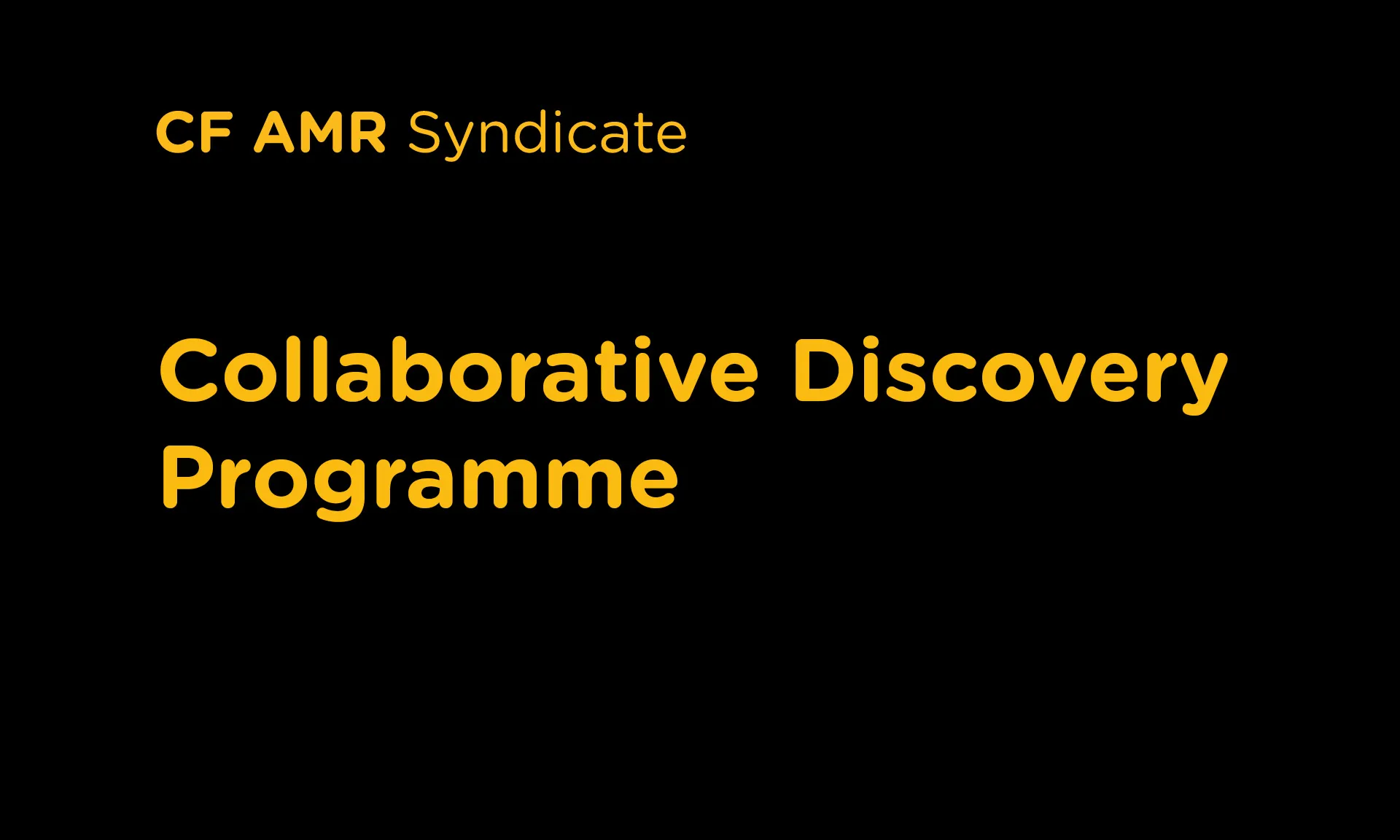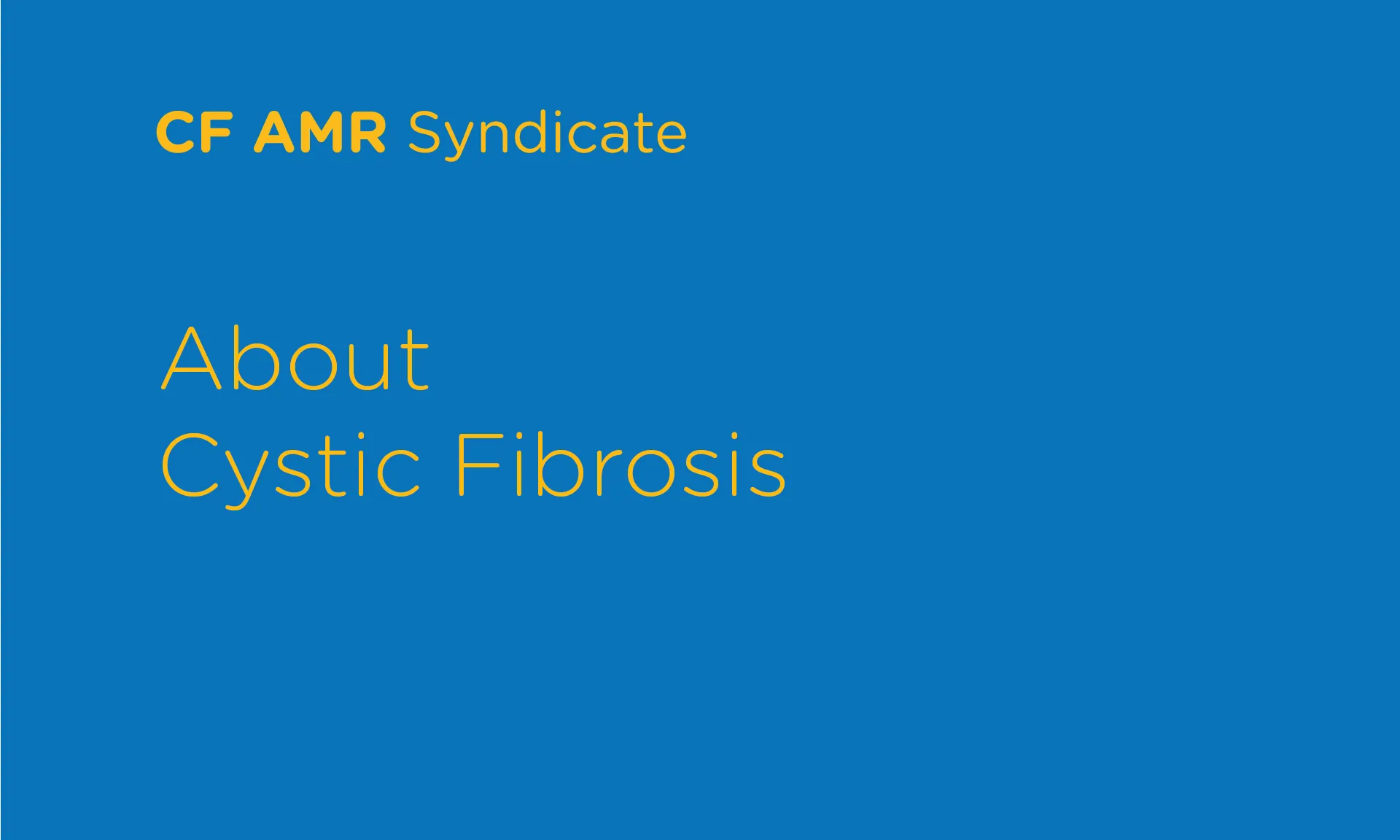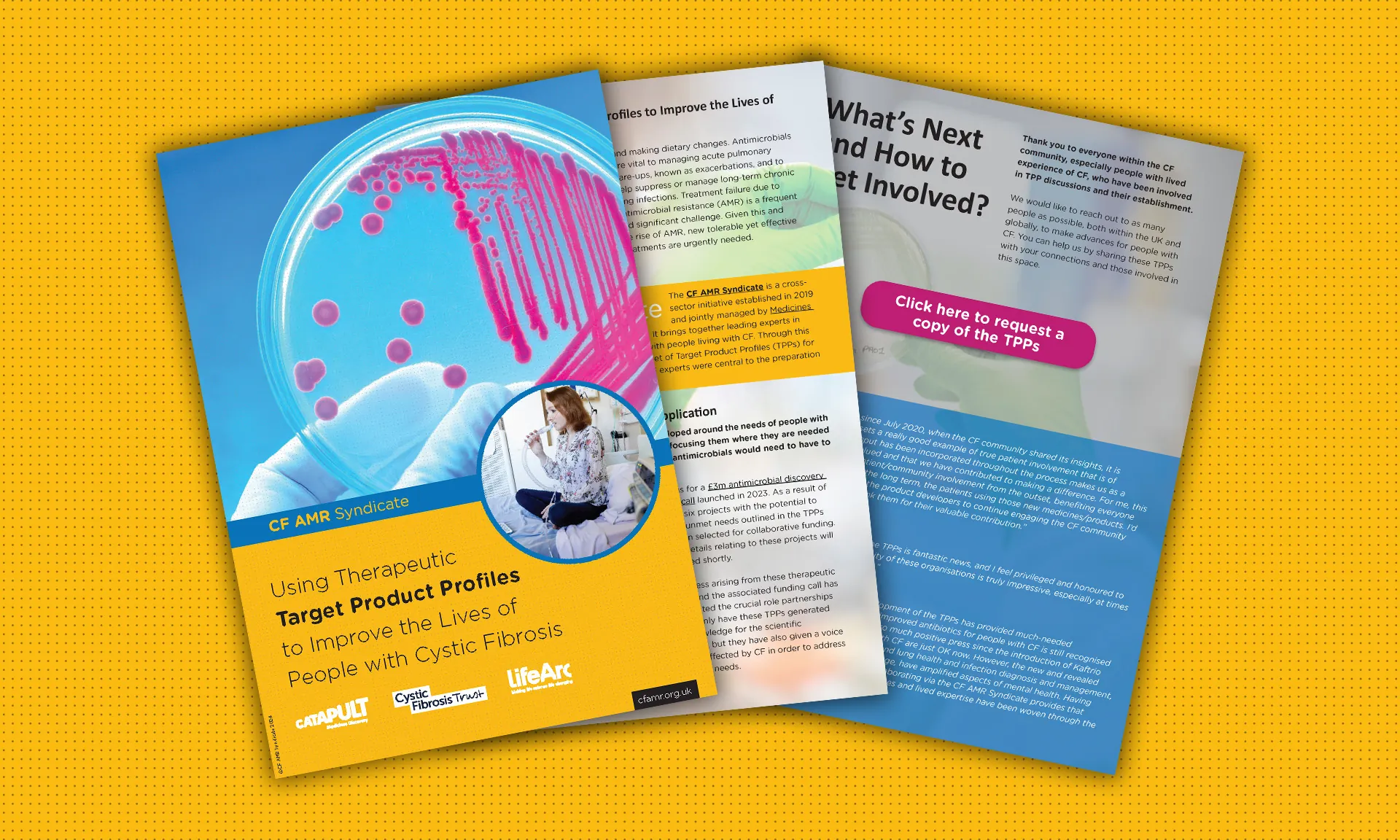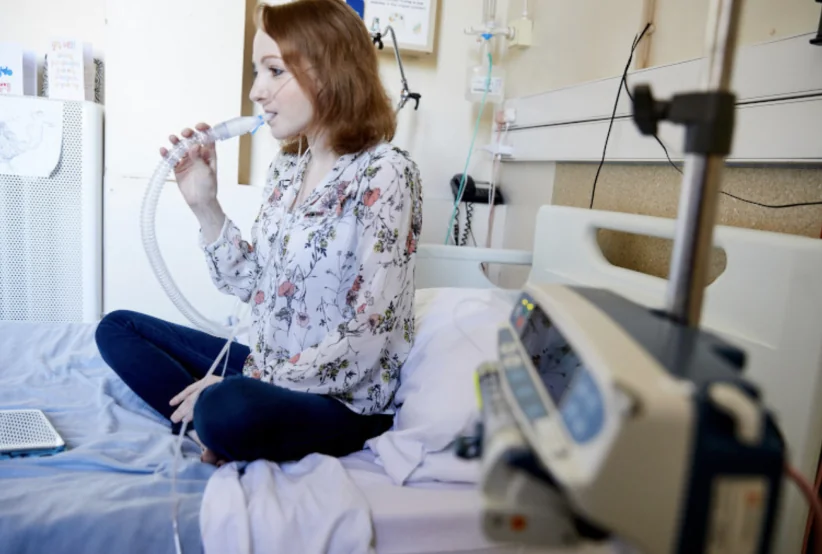Read Abi’s story of how having Cystic Fibrosis and living with a chronic infection has affected her life. Abi is an active contributor to the CF AMR Syndicate’s Steering Committee.
I’m Abi. I’m a 31-year-old cystic fibrosis (CF) patient with a chronic Burkholderia infection.
As a child, my CF was almost atypical. I was pancreatic insufficient and had a slightly unhappy liver, but other than I was “normal”. My FEV1 was in the late 90s and occasionally early 100s, and I did everything my non-CF friends did. Yes, I took regular creon, vitamins, ursodeoxycholic acid, supplements and a prophylactic antibiotic, but I never had any issue with my chest or bowels. I exercised well, kept away from the hospital for everything but quarterly clinic appointments, and my twice-daily physio never produced even a fleck of mucus. I was healthy to a level where my CF didn’t feel real, and I would explain it whilst taking my meds to friends as “horrible for most, but luckily, I only have it mildly.”
When I’d just turned 16 my luck seemed to run out overnight when my paediatric consultant called to say my recent cough swab had cultured a rare Burkholderia. He didn’t have much to say, and as my health hadn’t changed he decided to adopt a “watch and wait” approach whilst repeating the swab. 2 weeks later at the clinic he confirmed that this had also cultured the same bug, which had been identified as Burkholderia gladioli. I couldn’t start any antibiotics for it as it was still being tested for its exact weaknesses.
By 16, I already had a good understanding of CF and the nastier bugs. Pseudomonas had felt like an ever-present danger that I’d somehow miraculously swerved and as a 90s child my bigger fear was cepacia. Catching a Burkholderia that wasn’t cepacia was a complete curve ball. The lack of information about both what it would do and how to treat it was deeply distressing. My doctor had no information he was willing to provide me with, instead telling me not to worry; the gladioli would likely just sit dormant in my lungs till he could eradicate it.
Despite my fears, my doctor was right. The gladioli didn’t suddenly wreak havoc in my lungs, my lung function stayed high, and I remained symptom-free and carried on living a normal life like I always had. My doctor decided it wasn’t the time to start eradication treatment as I was on the cusp of moving up to adulthood. Over the following 18 months, the gladioli grew on every single cough swab, and at my first adult unit appointment, I was informed that eradication was now not worth pursuing. As my health was still good no additional antibiotics were added into my regime on the basis that Burkholderia gladioli is vulnerable to so few they shouldn’t be wasted.
At the age of 21, I moved my CF centre. Although I was still very healthy within a year of the move, I had become unwell enough that I needed my first-ever IVs. This was a hard experience as I was very sick from the combination of meds, a common feature of the brutal regimes used for Burkholderia. I had lost weight from the exacerbation and lost even more from the IVs. At the time, I thought it was tough, but now I’m 9 years into increasingly frequent IVs, I can see the first time was a walk in the park compared to IVs nowadays. The combinations make me horrendously sick unless IV anti-sickness is administered with every dose; I get brain fog, terrible diarrhoea, rashes, itching, painful pins and needles, temperatures, elevated liver levels and recently a heart rate of 151 just lying in bed.
Although the side effects of the IVs are hard to handle, the ever-increasing number of courses is the more alarming factor. When I have an exacerbation, I usually experience fevers, shortness of breath, joint pain, strong pain in both lungs and sometimes full night sweats. My Fev1 has never been too badly affected (baseline still in the 60s), but the symptoms of exacerbations are becoming worryingly regular. Last year I had 5 IV courses and a 6-week course of additional orals, the year before 6 lots of IVs. For every exacerbation, I start hopeful with orals then wind up doing IVs anyway. Sadly, a decision was agreed recently that I should have my IVs as an inpatient due to my lowered ability to tolerate the meds. I’m sure you can imagine the stress regularly yet randomly taking 2 weeks out from work and family life (I have 3 children) causes, but my antibiotic allergy list is now laughably long and with options being limited, “allergic” doesn’t always mean “don’t prescribe”, it’s more “prescribe with caution”.
In between exacerbations, I nebulise meropenem and tobramycin alternate months to try and keep a lid on the infection. These nebs are my biggest frustration and the worst part of my daily CF treatment burden. Meropenem neb is an off-label use, so I must mix it up like I would for an IV and inhale it through an e-flow over 25 minutes twice a day. Tobramycin takes about 20-25 minutes twice a day, too, but is at least a premixed med in a small plastic vial, which saves prep time.
For me, the worst part of this unpleasant situation is the knowledge that there’s nothing coming to change it. The antibiotics Burkholderia reacts to are all quite old now and there’s nothing in the pipeline. My increased treatment has simply been more of the same, not anything new. It often feels that it’s the forgotten bug. It only really affects CF patients, and thankfully cross infection policies have meant it’s no longer an epidemic at centres. The only patients who have it are the few who have been somehow unlucky enough to pick it up randomly.
The advent of modulators has changed the landscape of Cystic Fibrosis for many, but it is still early days.
Although Kaftrio especially is wonderful for many we do not know its long-term efficacy. Unfortunately, not everyone is eligible for modulators and some of those eligible are unable to tolerate. I am sadly in the group of patients who have had to come off due to intolerable side effects. But even those doing well with modulators now will need new antimicrobials in the future. CF may seem different now, but it has not gone.
From my personal experience, there is an undeniable gap in research for Burkholderia despite its poor prognosis, leaving a bleak situation for CF patients. I very much hope that the CF AMR syndicate will help plug it, providing a brighter future for those suffering now and those unfortunate enough to catch it in the future.









